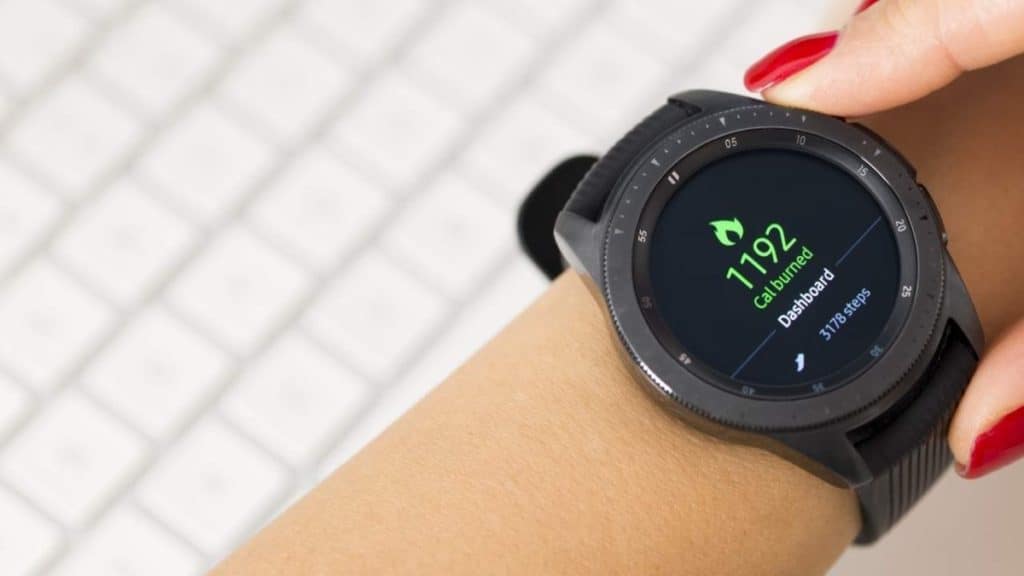
Understanding your 2-mile average running time is more important than your 1-mile average time because you can run flat out over a 1-mile distance. But at 2 miles, you have to pace better, or you will burn out fast. Therefore, your 2-mile average time is more suitable for estimating longer distance running times.
On average, it will take between 18-22 minutes to run 2 miles for those who have been running regularly. If you use the run-walk method, then 25–30 minutes is a good average time. An intermediate runner can expect a time of 12-16 minutes and a professional around 10-12 minutes.
Table of Contents
Average Time to Run 2 Miles By Age
The following table has the approximate average time it takes to run 2 miles. The times are based on the pace most runners use in a 5K race, so you may be able to shave some time off of this.
The table is split by sex and by age, as different sexes tend to have different average paces and runners are generally fastest in their early adult lives.
First let’s look at how long it takes to run 2 mile by age for males;
| Average Time to Run 2 Mile For Males | ||||||
| Age | Beginners | Intermediate | Advanced | |||
| 15-20 | 19:08 | 15:38 | 12:02 | |||
| 20-25 | 19:00 | 15:34 | 11:56 | |||
| 25-30 | 20:06 | 15:38 | 12:04 | |||
| 30-35 | 20:18 | 15:46 | 12:10 | |||
| 35-40 | 20:46 | 15:56 | 12:44 | |||
| 40-45 | 20:56 | 16:26 | 13:06 | |||
| 45-50 | 21:26 | 16:58 | 13:36 | |||
| 50-55 | 22:16 | 17:42 | 14:04 | |||
| 55-60 | 24:16 | 19:32 | 15:06 | |||
| 60-65 | 26:10 | 19:58 | 15:42 | |||

Next, lets see the average time for a female to run 2 mile by their age groups;
| Average Time to Run 2 Mile For Females | ||||||
| Age | Beginners | Intermediate | Advanced | |||
| 15-20 | 22:58 | 18:06 | 14:16 | |||
| 20-25 | 23:20 | 17:56 | 14:06 | |||
| 25-30 | 23:24 | 18:06 | 14:18 | |||
| 30-35 | 24:18 | 18:18 | 14:28 | |||
| 35-40 | 24:26 | 19:16 | 14:46 | |||
| 40-45 | 24:48 | 19:54 | 15:42 | |||
| 45-50 | 25:22 | 20:06 | 16:04 | |||
| 50-55 | 26:40 | 20:40 | 17:04 | |||
| 55-60 | 29:14 | 22:00 | 17:58 | |||
| 60-65 | 29:34 | 23:16 | 18:10 | |||
2 miles is a popular length to run because most people can easily fit it into their busy daily routines. It gives you a long enough run to really get your heart rate up and it takes less time than running a 5K (just over 3 miles), but it can help as you are training to add more distance to your endurance running.
Also, remember it is average, so if you have trained extensively, you may already be running faster than this pace. Similarly, running paths with more hills will take longer than flat courses. For instance, if you run on a treadmill, you will run approximately 1-2 minutes faster than outdoors.
If you are interested in learning more about how your 2-mile time “scores” when compared to other runners in your age group, the US army has published a score sheet. The higher the “points” your 2-mile time gets, the better you stack up. The army has published the score sheet for both female and male runners.
Other Running Distances That Could Help You
Check out my big running data analytics that contains every running distance by age and gender in a full comparison table for beginners and intermediates. You can compare your average running times against every distance in your age and ability group.

How Many Calories will a 2-mile Run Burn?
On average, you can expect to burn around 200-400 calories running a distance of 2 miles. However, this depends on your weight, fitness levels and running speed.
The number of calories you burn on the run will depend on several factors. The pace you run can affect how many calories you burn, as it will determine the intensity of your workout. However, it doesn’t necessarily mean the faster you run, the more calories you will burn. In fact, running in the correct heart rate zones is more important than running fast.
Similarly, different body types and weights will burn more or less calories depending on their exertion rate. The more weight you carry, means you will burn more calories because you have a bigger mass to move. The more weight you lose, the fewer calories you will burn because our bodies become more efficient at using energy the fitter we become.
How much you are getting your heart rate up is essential for estimating your calorie burn in any given activity. I highly recommend that you use a heart rate monitor when you run. It provides the most accurate measurement of calories burned for your exact body type and heart rate.
What’s the best investment you could make in your running performance? To discover the exact running gear and why it has significantly improved my running, read this post.
How Many Calories Do You Burn Running 2 Miles?
The following table gives rough estimates for how many calories people of certain weights will burn, assuming a 20-25 minute pace for their 2-mile run. Keep in mind that these are only estimates and everyone’s body is different, so the numbers may vary for your circumstances.
Read the full article, how many calories do you burn running 2 mile.
| Weight | Approximate Calories Burned |
| 100 lbs | 165 calories |
| 110 lbs | 181 calories |
| 120 lbs | 198 calories |
| 130 lbs | 214 calories |
| 140 lbs | 231 calories |
| 150 lbs | 247 calories |
| 160 lbs | 264 calories |
| 170 lbs | 280 calories |
| 180 lbs | 296 calories |
| 190 lbs | 313 calories |
| 200 lbs | 329 calories |
| 210 lbs | 346 calories |
| 220 lbs | 362 calories |
| 230 lbs | 379 calories |
| 240 lbs | 395 calories |
| 250 lbs | 412 calories |
| 260 lbs | 428 calories |
| 270 lbs | 445 calories |
| 280 lbs | 461 calories |
| 290 lbs | 478 calories |
| 300 lbs | 494 calories |

Is it Recommended to Run 2 Miles Every Day?
Running 2 miles every day is recommended by many runners because it is an achievable distance that burns enough calories to lose weight and improve cardiovascular fitness. Provided that you have no other health issues that would make it difficult, it can be incredibly beneficial and is recommended to run 2 miles every day.
That being said, if you are training and running every day, you should also make sure that you are taking a rest day once per week where you let your muscles recover. This is especially important as you are newer to running and your body is not as used to the strenuous sport.
If you are just getting started with running, 2 miles may be too much to do every day. Listen to your body and note how much time it is taking you to recover from every run. You may be more comfortable starting with a smaller distance and working your way up to adding a 2 mile run every day.
A rest day looks different for everyone. You could simply walk on your rest day. Some people use rest days to let their bodies fully recover. Other people like to train yoga to help improve their flexibility. I like to use my Peloton 2 or 3 times a week for recovery and to improve stamina and build leg muscle. Find what works best for you.

Can You Lose Weight Running 2 Mile Every Day
On average, it takes around 3500 calories to lose 1 pound of body fat. If you run every day for 2 miles, you can expect to burn 0.5 – 1 pounds of body fat each week without diet, indicating running every day can help you lose weight.
However, it is important to note that how much weight you lose depends on a number of factors, including your diet and other exercise regimens. Additionally, everyone’s body is different, so some people may lose more weight than others when running the same distance every day.
One of the best ways to lose weight while running is to focus on your diet as well. Eating a healthy, well-balanced diet will ensure that you are getting all of the nutrients and energy that you need to sustain yourself throughout the day.
Additionally, eating nutritious foods will help keep your body strong and healthy while you exercise, which can further improve your weight loss results. A recovery shake or meal replacement is ideal after your runs because you are less likely to eat something unhealthy or full of processed sugar and fat.
Here’s my favourite post-run recovery shake that provides me with enough protein, carbs, and nutrients needed to improve fitness and lose weight.
Benefits of Running 2 Miles Every Day
Adding regular 2 mile runs to your routine can be incredibly beneficial for your physical and mental health. Many people find that adding regular 2 mile runs to their routine helps them lose weight as a result of extra calories burned. Others find that the muscles in their legs become more toned after training with running.
Running 2 miles per day is also exceptional for improving your heart health. Studies have found that adding habitual running can have positive results on resting heart rate and VO2 max. VO2 max measures how much oxygen your body is capable of using while you exercise.
Habitual running can also improve mental health. Cardio exercise has been shown to reduce the results of long-term stress and help produce the “feel-good” chemicals in the brain. There’s nothing better than switching your overactive mind off for 20 minutes whilst you run. You will feel refreshed and rejuvenated when you run outdoor, which massively boosts your mood and energy levels.
How Long to See Results from Running 2 Miles Per Day
As long as your run regularly and let your body recover, you will see some noticeable growth in your endurance within the first week. Many notice that after only a week of training, they can shave noticeable increments off of their 2-mile running pace.
If you’re using the run-walk method initially, you should be running non-stop by week 2 of regular running. If you can run non-stop from the beginning, you will more than likely be doubling your distance to 4 miles or 6 miles before the end of the month.
After 4-6 weeks, you may notice a change in your muscle tone or body fat composition percentage. If you are running for weight loss, it may take 8-12 weeks before you see a noticeable change in your body. If you have a lot of body fat to lose, you will notice this a lot faster.
Average Time to Run 2 Mile Summary
Running two miles can be a great way to get in shape and stay healthy. But how long does it take to run two miles? The answer depends on the individual, but on average it takes around 18-22 minutes for someone who has been running regularly. For those using the run-walk method, it may take 25-30 minutes.
The pace of your run will also affect the time it takes to complete two miles. If you are a beginner, it could take up to 30 minutes or more depending on your fitness level and speed. On the other hand, if you are an experienced runner, you could finish two miles in as little as nine minutes.



